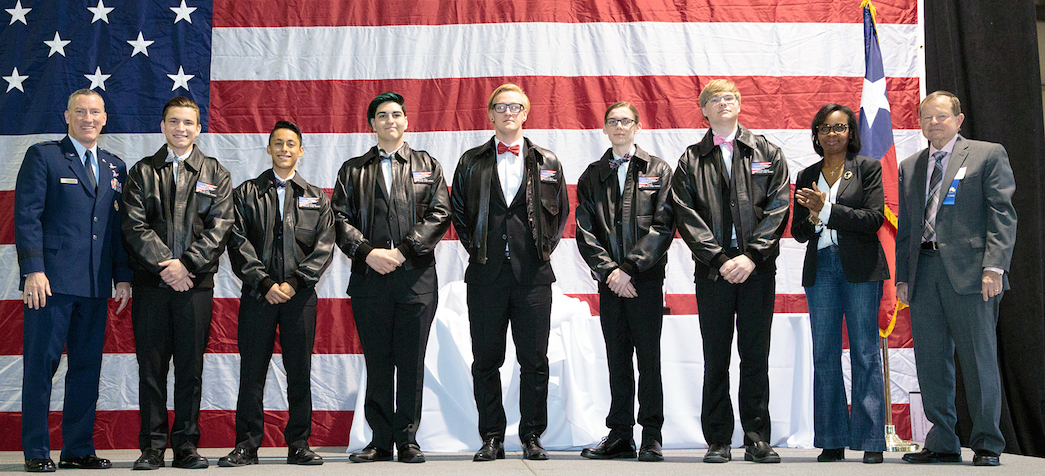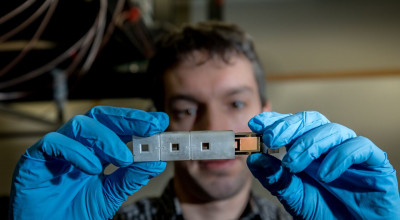
The Georgia Tech Research Institute's Cyber Technology and Information Security Laboratory (CTISL) and the San Antonio field office presented leather bomber jackets to the winning CyberPatriot team at the Mayor’s Cyber Cup Luncheon for the third year in a row.
GTRI San Antonio Field Office Director Jim Hilliard presented students from Alamo Academies High School their jackets on April 2, 2016. The team was one of 198 high school and middle school teams from San Antonio who entered the competition. Alamo Academies will travel to Washington, D.C., to compete from teams around the country.
CyberPatriot, started by the Air Force Association (AFA), works to inspire high school and middle school students toward careers in cybersecurity, along with other science, technology, engineering or mathematics (STEM) disciplines.
“These deserving students were not only recognized by us at GTRI, but Maj. Gen. Ed Wilson, Commander of the 24th Air Force Cyber Command and by San Antonio Mayor Ivy Taylor,” Hilliard said. “It is crucial to help provide incentives and assistance to these students in studying the disciplines so critical to our nation’s security and future.”
Since 2012, CTISL and the field office has awarded the winning teams bomber jackets. More than 600 were in attendance at the luncheon.
The San Antonio Field Office focuses on the support of cyber and intel programs. Each of GTRI’s 15 field offices support all government agencies and provide access to GTRI’s eight laboratories.





